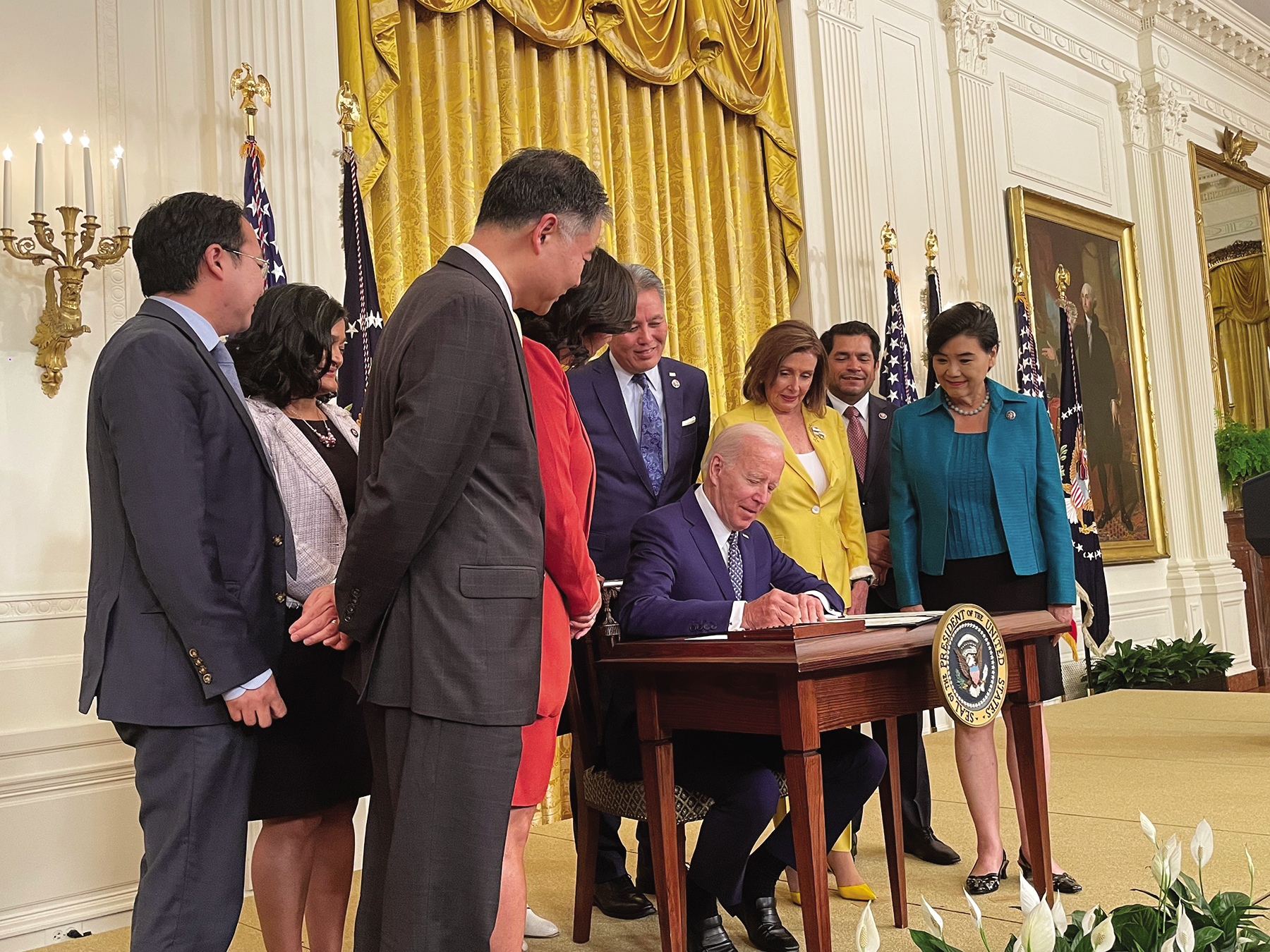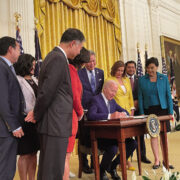
UNITED States President Joe Biden on Monday, June 13 signed a bill that will kickstart the creation of a national museum dedicated to Asian American and Pacific Islander (AAPI) history and culture.
HR 3525, also called the Commission to Study the Potential Creation of a National Museum of Asian Pacific American History and Culture Act, will establish a select group of AAPI leaders who will issue recommendations for a “plan of action for the museum.”
In other words, this commission will be responsible for what is included in the museum as well as possible locations, likely within the Washington D.C. area.
At the signing in the East Room of the White House, Biden spoke on the generations of AAPIs who “have literally shaped the history and the contours of this country.”
“It’s about time for a national museum to capture the courage, the character, the imagination and – maybe from my perspective, looking at it from a little bit from a distance – the dreams and the heart and the soul of the generations of our fellow Americans that came before you,” Biden added.
The commission will also study the costs of such a museum and whether or not it should be an off-shoot to the Smithsonian Institute.
Biden was also joined by Vice President Kamala Harris, who as a South Asian American is the first Asian American vice president.
“Growing up, my mother made sure that my sister Maya and I learned of the important, glorious history of Asian Americans, Native Hawaiians and Pacific Islanders in America,” Harris said. “Because that, of course, is part of the history of America.
She continued, “To teach this history is to help all of us as Americans understand where we come from, and to teach this history is to help us understand who we are,” Harris added.
In addition to celebrating the American triumphs for which Asian Americans are responsible, the museum is expected to provide a sobering look into the history of anti-Asian discrimination in the U.S.
“This is also a story about some of our country’s darkest moments,” Harris said on Monday before the signing. “The Chinese Exclusion Act, the internment of Japanese Americans, the murder of Vincent Chin, discrimination against South Asian Americans after 9/11, and today’s epidemic of [anti-Asian] hate.”
As previously reported in the Asian Journal, AAPI advocacy groups all agree that education and more exposure to the nuances of Asian cultures is a necessary step to curbing anti-Asian hate.
Biden and Harris have been vocal about their commitment to addressing the rise in anti-Asian hate crimes since their election. Among his first acts as president, Biden signed the COVID-19 Hate Crimes Act, a broad piece of legislation that promised to strengthen law enforcement to better address hate crimes.
The legislation comes as Washington is also in the process of planning two other cultural museums: the National Museum of the American Latino and the Smithsonian Women’s History Museum. In 2016, the National Museum of African American History and Culture opened, which kickstarted talks to establish other museums dedicated to other minority identities. n






